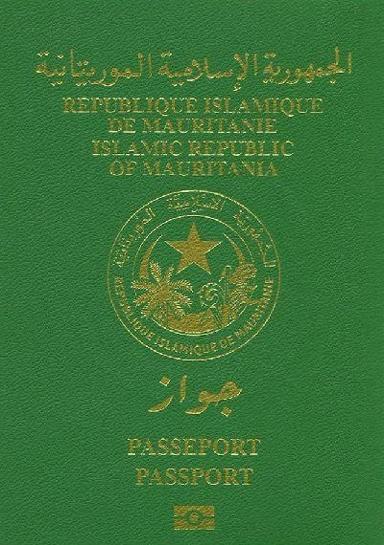
 Mauritania
Mauritania
 Mauritania
Mauritania
























 Albania
Albania Antigua and Barbuda
Antigua and Barbuda Australia
Australia Bahamas
Bahamas Bahrain
Bahrain Bhutan
Bhutan Botswana
Botswana Cameroon
Cameroon Colombia
Colombia DR Congo
DR Congo Ecuador
Ecuador El Salvador
El Salvador Equatorial Guinea
Equatorial Guinea Gabon
Gabon Georgia
Georgia Guinea
Guinea Indonesia
Indonesia Iraq
Iraq Kazakhstan
Kazakhstan Kenya
Kenya Kyrgyzstan
Kyrgyzstan Lesotho
Lesotho Libya
Libya Malawi
Malawi Moldova
Moldova Mongolia
Mongolia Oman
Oman Pakistan
Pakistan Papua New Guinea
Papua New Guinea Qatar
Qatar Saint Kitts and Nevis
Saint Kitts and Nevis Sao Tome and Principe
Sao Tome and Principe South Korea
South Korea South Sudan
South Sudan Tajikistan
Tajikistan Tanzania
Tanzania Togo
Togo Uganda
Uganda United Arab Emirates
United Arab Emirates Vietnam
Vietnam Zambia
Zambia Zimbabwe
Zimbabwe Afghanistan
Afghanistan Andorra
Andorra Angola
Angola Argentina
Argentina Armenia
Armenia Austria
Austria Azerbaijan
Azerbaijan Belarus
Belarus Belgium
Belgium Belize
Belize Bosnia and Herzegovina
Bosnia and Herzegovina Brazil
Brazil Brunei
Brunei Bulgaria
Bulgaria Canada
Canada Central African Republic
Central African Republic Chile
Chile China
China Costa Rica
Costa Rica Croatia
Croatia Cuba
Cuba Cyprus
Cyprus Czech Republic
Czech Republic Denmark
Denmark Dominican Republic
Dominican Republic Egypt
Egypt Eritrea
Eritrea Estonia
Estonia Swaziland
Swaziland Fiji
Fiji Finland
Finland France
France Germany
Germany Greece
Greece Grenada
Grenada Guatemala
Guatemala Guyana
Guyana Honduras
Honduras Hungary
Hungary Iceland
Iceland India
India Ireland
Ireland Israel
Israel Italy
Italy Jamaica
Jamaica Japan
Japan Jordan
Jordan Kiribati
Kiribati Kosovo
Kosovo Kuwait
Kuwait Latvia
Latvia Liberia
Liberia Liechtenstein
Liechtenstein Lithuania
Lithuania Luxembourg
Luxembourg Malta
Malta Marshall Islands
Marshall Islands Mexico
Mexico Monaco
Monaco Montenegro
Montenegro Morocco
Morocco Myanmar
Myanmar Nauru
Nauru Netherlands
Netherlands New Zealand
New Zealand North Korea
North Korea North Macedonia
North Macedonia Norway
Norway Palestine
Palestine Panama
Panama Paraguay
Paraguay Peru
Peru Poland
Poland Portugal
Portugal Romania
Romania Russia
Russia San Marino
San Marino Saudi Arabia
Saudi Arabia Serbia
Serbia Slovakia
Slovakia Slovenia
Slovenia Solomon Islands
Solomon Islands Somalia
Somalia South Africa
South Africa Spain
Spain Sudan
Sudan Suriname
Suriname Sweden
Sweden Switzerland
Switzerland Taiwan
Taiwan Thailand
Thailand Tonga
Tonga Trinidad and Tobago
Trinidad and Tobago Turkey
Turkey Turkmenistan
Turkmenistan Ukraine
Ukraine United Kingdom
United Kingdom United States
United States Uruguay
Uruguay Uzbekistan
Uzbekistan Vanuatu
Vanuatu Vatican
Vatican Venezuela
Venezuela Yemen
YemenMauritania, officially known as the Islamic Republic of Mauritania, is located in Northwest Africa. It is bordered by the Atlantic Ocean to the west, Algeria to the northeast, Mali to the east, and Senegal to the southwest. As of 2020, the population stands at approximately 4.5 million people, with a diverse blend of ethnic groups including Moors, Black Africans, and others.
The country has a desert climate, with high temperatures and low rainfall. The coastal region is somewhat cooler and receives more precipitation, allowing for a more diverse array of flora and fauna. Despite the harsh climate, Mauritania is rich in natural resources, including iron ore, gold, copper, and offshore oil and gas reserves.
Mauritania’s economy is largely based on agriculture, livestock, mining, and fishing. However, the country faces challenges such as a high unemployment rate and economic inequality. The country is still developing its tourism industry, with attractions including the ancient cities of Chinguetti and Ouadane, the Banc d’Arguin National Park, and the Richat Structure, a geological circular feature visible from space.
Culturally, Mauritania is deeply rooted in Islamic traditions with Arabic being the official and most spoken language. The traditional music, dance, and cuisine reflect a blend of Berber, Arab, Black African, and French influences. Despite the challenges, the Mauritanian people are known for their warm hospitality and rich cultural heritage.